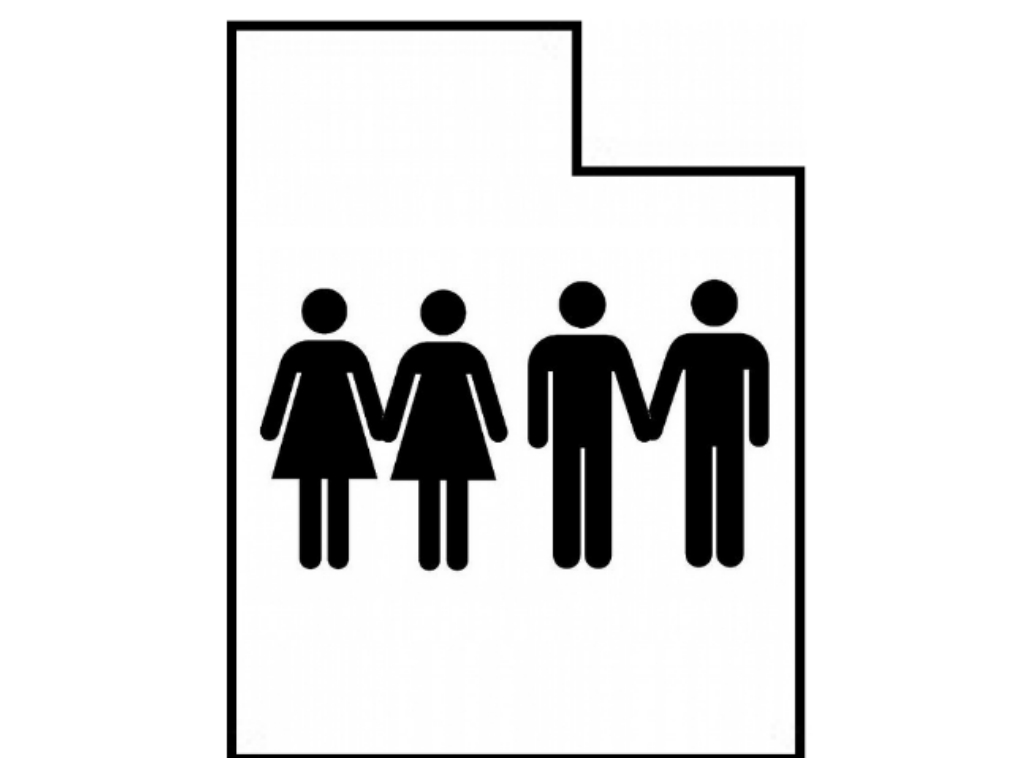Yesterday's emergency ruling by the U.S. Supreme Court not only ended a record run of nearly 1,000 marriages in Utah. The apparently unanimous decision to temporarily restore Utah's state law banning same-sex marriages suggests this case could be the legal battle both sides of the debate have been waiting for.
In June, the Supreme Court managed to rule on two separate cases involving same-sex marriage without ruling on the merits of a constitutional right to same-sex marriage. Now court watchers are assessing whether the unusually straightforward legal case in Utah likely makes it, as NPR suggests, "the case that forces the high court to wrestle [directly] with the big issue."
Past cases have involved multiple legal questions or technical issues that have allowed courts to issue rulings without addressing the merits of the core issue. Kitchen v. Herbert has no technical issues and no legal questions to answer besides the power of states to bar same-sex marriage within their borders.
However, SCOTUSblog cautions that Monday's emergency ruling "cannot be interpreted as a dependable indication of how the [Supreme Court] will rule."
Utah became the 18th state to allow same-sex marriages on Dec. 20 when U.S. District Judge Robert Shelby issued a 53-page ruling declaring that Utah's constitutional amendment, passed by voters in 2004, violates the rights of gay and lesbian couples to due process and equal protection under the 14th Amendment.
"The state's current laws deny its gay and lesbian citizens their fundamental right to marry," Shelby wrote, "and, in so doing, demean the dignity of these same-sex couples for no rational reason."
Utah governor Gary Herbert spoke out against Shelby's ruling, saying, "I am very disappointed an activist federal judge is attempting to override the will of the people of Utah."
The Tenth Circuit Court of Appeals rejected Utah's request to halt same-sex marriages during the appeal, clearing the way for the state's attorney general Sean Reyes to appeal to the Supreme Court.
State officials on Dec. 31 asked Justice Sonia Sotomayor, who handles emergency appeals for the region, for a stay of Shelby's ruling. "Each [same-sex marriage] is an affront not only to the interests of the state and its citizens in being able to define marriage through ordinary democratic channels, but also to this court's unique role as final arbiter," Utah said in its filing.
The case will now go through the Tenth Circuit, which granted an expedited briefing schedule for the state's appeal.
Utah's successful request for a stay of Shelby's ruling restores the same-sex marriage ban in Utah until the appeal process is complete. More than 900 gay and lesbian couples have already married since the ruling. The fate of these marriages is unknown at this time.
Same-sex marriage is currently legal in 17 U.S. states and the District of Columbia, but banned in 33 states, including—for now—Utah.
(Photo courtesy of Mike Licht – Flickr)









